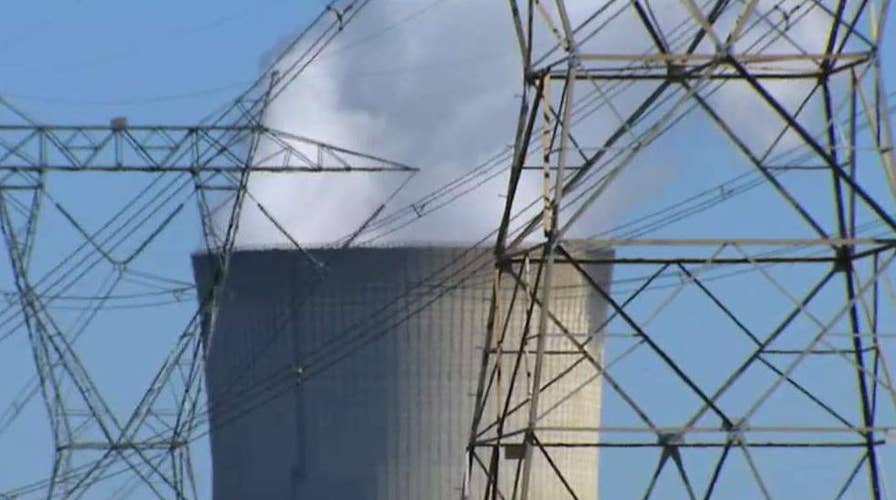Georgia officials approve completion of nuclear power plant
Despite cost overruns and years of delays, the Georgia Public Service Commission unanimously approved permitting of the Vogtle 3 and 4 reactors in Burke County, Georgia; Doug McKelway reports.
On Jan. 17, 1955, the commanding officer of the Navy's first nuclear submarine, the U.S.S. Nautilus, signaled, "Underway On Nuclear Power."
Those remarks heralded the dawn of a new peaceful use of nuclear energy. Indeed, the sub's propulsion system was the prototype for U.S. civilian nuclear plants.
But in a sign of how nuclear power's appeal has waned since then, no new civilian nuclear power plant has been licensed and built in America since 1978. Accidents, aging infrastructure, opposition from environmentalists and bureaucratic obstacles have dulled the technology's once-bright promise.
On Thursday that may have changed, though, when the five members of the Georgia Public Service Commission voted unanimously to approve the permitting and final construction of the Vogtle 3 and 4 reactors in Burke County.
The owner, Georgia Power, announced moments later it would complete the plant, with a tinge of reluctance. Under stipulations demanded by regulators, it must deliver rebates of $75 to each of its nearly two and a half million customers in 2018 because of cost overruns and delays.
"We will do all that we can to complete this project," Kevin Greene, an attorney for Georgia Power, told the commission.
Despite the panel's unanimous vote, commissioners had their own reservations.
For the last decade, there have been budget overruns and busted schedules, "and it is an inherently risky project," Chairman Stan Wise told reporters after the votes had been cast.
The risk stems in part from the just=passed tax bill, which did not include an extension of nuclear power tax credits that would have made construction more economically feasible. Regulators announced the go-ahead anyway based on a promise from Republican Congressional leaders.
"They assured me that it would be an item that Congress would take up early in January," Wise said.
Environmentalists and others opposed to the plant fear customers will bear the brunt of any future cost overruns. "The problem here is that Georgia Power says if the extensions don't come through, they want customers to make up for that as well -- and we think that's unreasonable," Kurt Ebersbach, an attorney for the Southern Environmental Law Center, told Fox News.
Others contend it's pressure from environmentalists that has helped increase the costs of this non-carbon-emitting energy. One oft-cited illustration of the point involves Germany. Spurred in part by the nuclear accidents at Chernobyl, then in Fukushima, Japan, German Chancellor Angela Merkel undertook an energy transformation - promising to end all nuclear power by 2022. As German plants were taken off line, energy costs skyrocketed.
The two nuclear power stations at the Watts Bar generating plant in Tennessee offer another lesson in bureaucracy and the time-consuming permitting process. Construction got underway at Watts Bar in 1973. But the first unit was not completed until some 23 years later, and the second was finished about two years ago.





